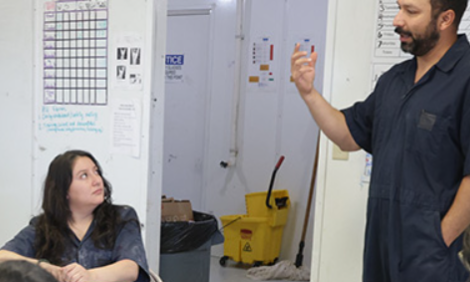



Reducing antibiotic usage in animal feed is not enough to combat antibiotic resistance
Oxford research shows antibiotic resistance continues despite reduction of antibiotic use.A new study led by the University of Oxford found that natural evolution of antibiotic resistance genes has maintained resistance in bacteria despite a reduction in the use of antibiotics. The new study indicates the importance of understanding the regulatory evolution of resistance genes to strategically combat AMR.
Antimicrobial resistance (AMR) is a serious and growing threat to global health, with 1.2 million people dying each year due to drug-resistant infections. The overuse and misuse of antibiotics is a major driver of AMR, and there is an urgent need to protect the efficacy of ‘last-line’ antibiotics to treat multidrug-resistant infections.
In 2017, the Chinese government banned the use of last-line antibiotic colistin as a growth promotor in animal feed in response to the rapid spread of antibiotic resistant bacteria- Escherichia coli (E.coli) carrying mobile colistin resistance (MCR) genes. Bacteria carrying MCR genes are resistant to treatment with colistin and cause hard to treat drug-resistant infections in humans and animals.
The ban led to a 90% reduction in colistin consumption, and scientists expected to see a corresponding drop in rates of AMR. However, large-scale surveillance studies across China following the ban found that the decline in the mcr-1 gene was slower than anticipated.
Researchers at the University of Oxford led by Professor Craig Maclean explored this discrepancy and found that the natural evolution of bacteria has maintained the colistin resistance mcr-1 gene despite the reduction in antibiotic usage, testing the idea that the evolution of this gene stabilised colistin resistance in E.coli by optimising mcr-1 expression. Professor MacLean said:
“Our results provide strong evidence that the evolution of the mcr-1 gene has helped to stabilise colistin resistance in agricultural settings, even though colistin use in agriculture has declined by 90%. This finding is of major importance for all future interventions targeting the reduction of antibiotic usage, demonstrating the need to consider the evolution and transmission of resistance genes to introduce viable strategies to reduce resistance.”
Professor Tim Walsh, co-author on the paper, said:
Colistin resistance across many strains of E.coli and in diverse environments from pig farms to hospital wards should act as our warning of the dangers of antibiotic overuse and misuse. Simply put, it is not enough to reduce antibiotic consumption in order to effectively combat antibiotic resistance. We need urgent and innovative approaches to combat antibiotic resistance, and new strategies to protect our last-resort antibiotics for when we need them most."







